The key to a successful school bus fleet electrification project
Dans cette série d’articles, nous démystifierons les grandes étapes d’un projet d’électrification de parc d’autobus scolaires grâce au guide Transporteur+. Ce guide a pour objectif d’offrir un accès facile et direct à des ressources, de clarifier les étapes, les enjeux ainsi que les conditions et mesures facilitantes pour une transition réussie vers l’électrification.
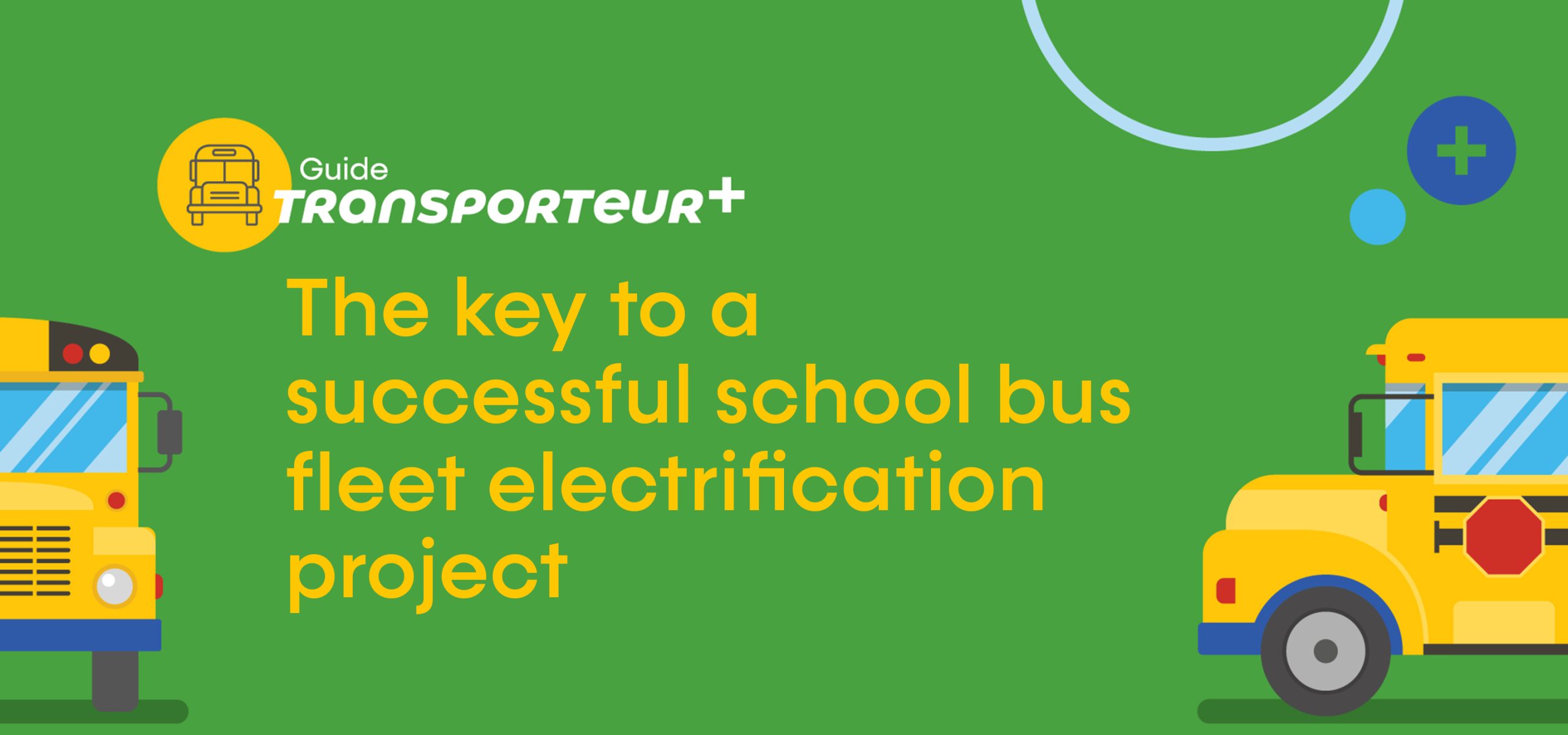
The secret to any major successful transformation project starts with good planning. The topic of school bus electrification raises several questions, and knowing where to start can be challenging. This article goes over the main steps of properly planning a school bus electrification project.
Before embarking on a project of this magnitude, you need to clearly identify your current and future needs. Start by putting your short-, medium- and long-term vision on paper, and ask the right questions. How many buses need to be replaced every year? What are my daily service requirements? What will my future electrical needs be? This planning phase is crucial and must be carried out in advance, even up to a year ahead of time, to ensure that you establish an effective transition plan that will not be the source of headaches!
Optimize your transition process
Each school bus operator has specific needs. At this stage, properly identifying the needs of your service and the situation in which your electric vehicle will develop is crucial. Identify the number of kilometres driven per day; the number of daily exits from the garage, including downtime at the garage/parking site; the types of trips and the route geography (city, country, paved or gravel roads, predominantly flat terrain or hilly); etc. Each element needs to be factored in! Don’t forget to check whether your electric vehicle will have to do long routes, like school trips, and if your electrical installation will allow you to charge it.
Make effective financing arrangements
After you have properly identified the needs of your school bus fleet, you can plan the financing structure of your electrification project and identify the different financing methods available. Plan for two primary cost categories:
- Operating costs : These include electricity, vehicle and charging infrastructure maintenance, fuel for auxiliary heating, licensing fees for software and access to real-time data, training, insurance, etc.
- Capital costs : These include the acquisition of vehicles, warranties and repair contracts, the acquisition of charging infrastructures, connection with Hydro-Québec, building reconfiguration, installation of a new distribution system, updating tools for maintenance and computers, battery replacement, etc.
Implementing a pilot project
The very last thing is implementing your pilot project, as it allows you to conduct a post-mortem analysis to correct the full fleet deployment strategy. This test phase should be planned and orchestrated using the same requirements as those identified to deploy a full fleet of electric buses. In this way, the pilot project will help validate as many hypotheses as possible.
To find out more, see the Transporteur+ webpage and the Transporteur+ guide.
This project was made possible thanks to the financial support of the Government of Quebec, the Trottier Family Foundation, the Greater Montreal Climate Fund and the Fonds de solidarité FTQ. Propulsion Québec would like to thank The Transition Accelerator and the WSP Canada team for their critical contributions, as well as all the experts involved in the development of this guide.
Continue reading on the subject

Zero-Emission Delivery Hub
The main objective of the zero-emissions delivery hubs project is to decarbonize last-mile delivery in Montreal’s delivery-dense areas. Last-mile delivery, also called urban delivery, is one of the most polluting steps in the delivery of your parcels. By integrating a drop-off point, also called a “zero-emissions delivery hub,” for decarbonized last-mile delivery in your area, […]
Read more
The challenges of designing a 40-tonne, 100% electric mining vehicle for open-pit mines
Partnerships and implications The partners involved in the development of a 100% electric Quebec mining vehicle were all eager to be involved with the project from the outset, for a variety of reasons. NRC’s Eddy Zuppel explained their contribution: “Before starting the project, it was important to model and simulate the vehicle’s route in order […]
Read more
Energy efficiency: Financial support to put your ideas into action
Leading a company involves balancing several priorities at the same time. Energy efficiency? It’s an important issue—one of many! What if we gave you what you need to make energy efficiency a driving force behind your company’s performance and profitability? The good news is, Hydro-Québec offers financial assistance and guidance to help you balance performance and energy efficiency.
Read more
My Consumption Profile: data that lets you strategically manage your electricity use
Companies have a critical role to play in the energy transition. Knowing that energy efficiency factors big into profitability, your organization will benefit from strategically managing its electricity use. The key? Your data!
Read more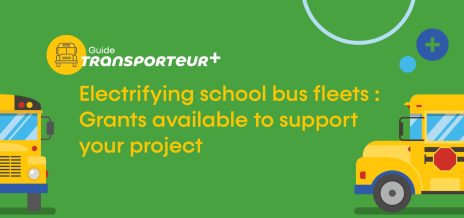
Electrifying school bus fleets : Grants available to support your project
In this series of articles, we demystify the key steps of converting your school bus fleet to electric power thanks to the Transporteur+ guide. This guide aims to provide easy and direct access to resources to clarify the steps, issues, conditions and facilitating measures for a successful transition to electrification.
Read more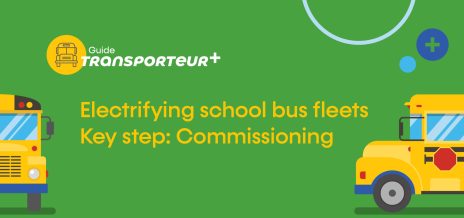
Electrifying school bus fleets | Key step : Comissioning
In this series of articles, we demystify the key steps of converting your school bus fleet to electric power thanks to the Transporteur+ guide. This guide aims to provide easy and direct access to resources to clarify the steps, issues, conditions and facilitating measures for a successful transition to electrification.
Read more
Demand response: Save money by using hydro at the right times
If you could lower your company's hydro bill while contributing to the collective effort to support Quebec’s energy transition, would you? Yes, most likely! How? By curbing power demand for buildings and equipment during peak demand events.
Read more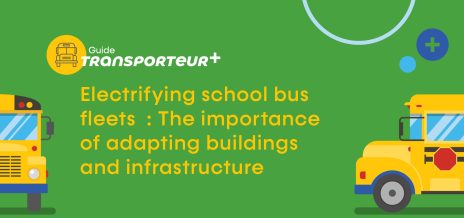
Electrifying school bus fleets : The importance of adapting buildings and infrastructure
In this series of articles, we demystify the key steps of converting your school bus fleet to electric power thanks to the Transporteur+ guide. This guide aims to provide easy and direct access to resources to clarify the steps, issues, conditions and facilitating measures for a successful transition to electrification.
Read more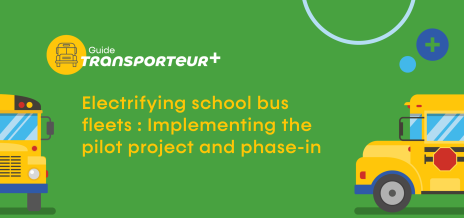
Electrifying school bus fleets : Implementing the pilot project and phase-in
In this series of articles, we demystify the key steps of converting your school bus fleet to electric power thanks to the Transporteur+ guide. This guide aims to provide easy and direct access to resources to clarify the steps, issues, conditions and facilitating measures for a successful transition to electrification
Read more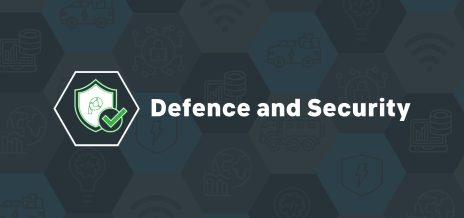
Defence and Security
The Electric and Smart Transportation (EST) positioning program for D&S is a project that will ultimately allow Propulsion Québec members to tailor their product and service offering to multiple D&S markets, facilitating the transition to electric and smart vehicle fleets and infrastructure.
Read more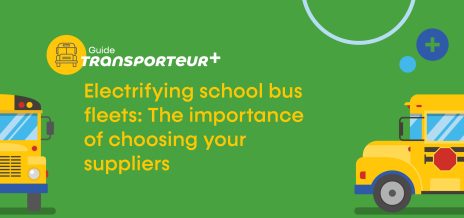
Electrifying school bus fleets: The importance of choosing your suppliers
In this series of articles, we demystify the key steps of converting your school bus fleet to electric power thanks to the Transporteur+ guide. This guide aims to provide easy and direct access to resources to clarify the steps, issues, conditions and facilitating measures for a successful transition to electrification.
Read more





